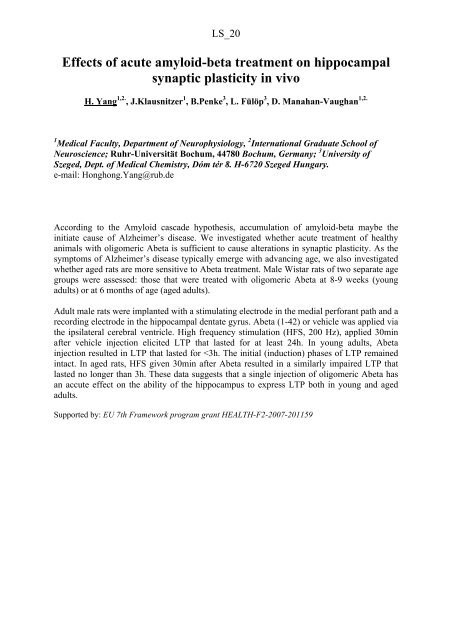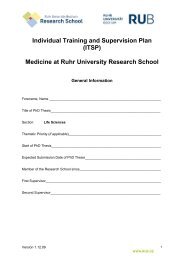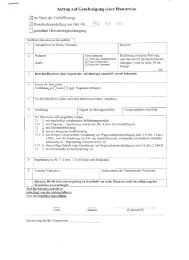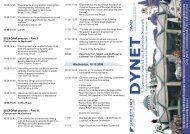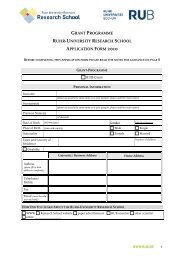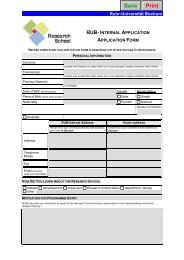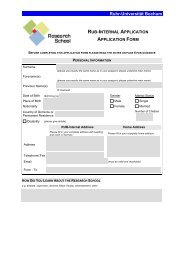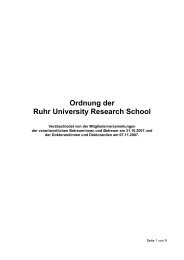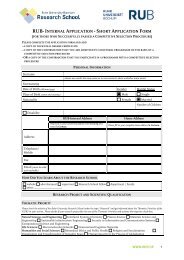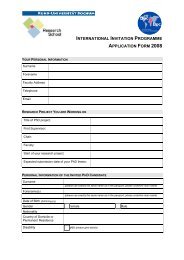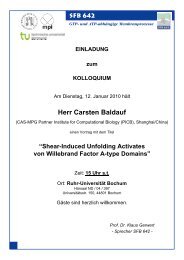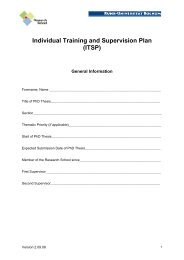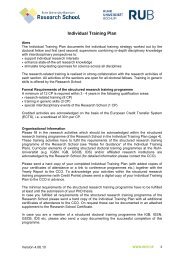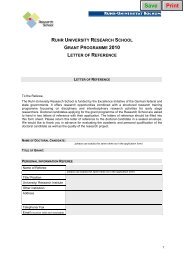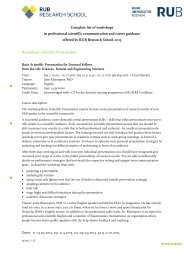Section Days abstract book 2010.indd - RUB Research School ...
Section Days abstract book 2010.indd - RUB Research School ...
Section Days abstract book 2010.indd - RUB Research School ...
Create successful ePaper yourself
Turn your PDF publications into a flip-book with our unique Google optimized e-Paper software.
LS_20<br />
Effects of acute amyloid-beta treatment on hippocampal<br />
synaptic plasticity in vivo<br />
H. Yang 1,2. , J.Klausnitzer 1 , B.Penke 3 , L. Fülöp 3 , D. Manahan-Vaughan 1,2.<br />
1 Medical Faculty, Department of Neurophysiology, 2 International Graduate <strong>School</strong> of<br />
Neuroscience; Ruhr-Universität Bochum, 44780 Bochum, Germany; 3 University of<br />
Szeged, Dept. of Medical Chemistry, Dóm tér 8. H-6720 Szeged Hungary.<br />
e-mail: Honghong.Yang@rub.de<br />
According to the Amyloid cascade hypothesis, accumulation of amyloid-beta maybe the<br />
initiate cause of Alzheimer’s disease. We investigated whether acute treatment of healthy<br />
animals with oligomeric Abeta is sufficient to cause alterations in synaptic plasticity. As the<br />
symptoms of Alzheimer’s disease typically emerge with advancing age, we also investigated<br />
whether aged rats are more sensitive to Abeta treatment. Male Wistar rats of two separate age<br />
groups were assessed: those that were treated with oligomeric Abeta at 8-9 weeks (young<br />
adults) or at 6 months of age (aged adults).<br />
Adult male rats were implanted with a stimulating electrode in the medial perforant path and a<br />
recording electrode in the hippocampal dentate gyrus. Abeta (1-42) or vehicle was applied via<br />
the ipsilateral cerebral ventricle. High frequency stimulation (HFS, 200 Hz), applied 30min<br />
after vehicle injection elicited LTP that lasted for at least 24h. In young adults, Abeta<br />
injection resulted in LTP that lasted for


